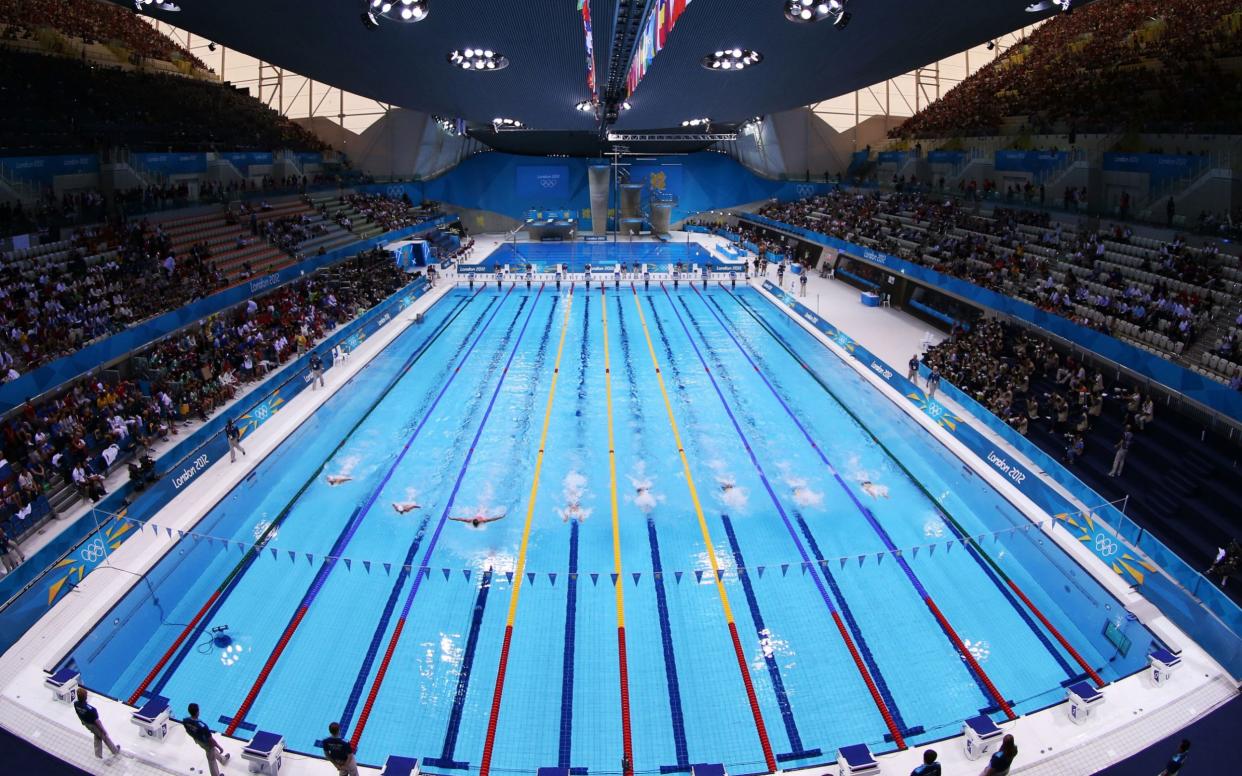UK Sport accused of failing in duty of care over experimental drink given to London 2012 athletes

UK Sport is facing claims it failed in its duty of care to athletes competing at London 2012 after asking them to sign waivers over a secretive performance-boosting drink which had yet to be approved by the World Anti-Doping Agency.
A total of 91 competitors from the world of cycling and seven other sports signed agreements to stay quiet about their early use of a synthetic version of a naturally occurring body acid called ketones, which left some of them feeling sick.
Its use is now more widespread in sport, to improve endurance, but at the time UK Sport persevered with trials despite Wada making no guarantees that it would not be banned.
The supplement, originally developed by Oxford University scientists with funding from American military chiefs to help make special forces more resilient behind enemy lines with fewer rations, was fed to British medal hopefuls early in 2012.
According to some associated with the trial, athletes found the substance "unpalatable" and gave up on its use during competition. UK Sport has denied any wrongdoing, but Rob Koehler, director general of the Global Athlete movement, said an independent investigation was now needed to establish whether the governing body had put its athletes at risk.
“Sporting organisations have a duty of care towards athletes," he told the Telegraph Sport. "If these allegations are true UK Sport has severely breached that duty of care. There must be an independent third-party investigation that involves athletes. Time after time we are seeing athletes be used and abused. This is another reason why athletes must have independent collective representation to protect their rights and interests.”
Secretive use of the DeltaG energy-boosting drink before of the London Olympics was first disclosed following freedom of information requests by the Mail on Sunday, which revealed that UK Sport had spent hundreds of thousands of pounds of public money on the project.
Jo Pavey, the 2014 European 5,000m champion, told the newspaper it was "upsetting" to see the governing body help "athletes trying to find gains they can get away with".
Pavey, who ran at London 2012 but wasn't offered ketones, added: "It's depressing, as you feel there is so much going on with people doing all sorts of things to the absolute limit....I feel it's fine to use over-the-counter supplements like iron, zinc, magnesium but medications for medical conditions that athletes do not have and the use of stuff like synthetic ketones is a step too far. It is not in the spirit of competition and may also be harmful."
All athletes who agreed to use DeltaG in the hope it might boost their London 2012 dreams were obliged to sign a binding non-disclosure agreement (NDA), compelling them never to speak about their involvement in the project.
Documents show UK Sport produced a "participant information sheet" to accompany the project application which read: "UK Sport does not guarantee, promise, assure or represent that use of ketone esters is absolutely World Anti-Doping Code compliant and therefore excludes all responsibility for use of the ketone ester."
The FOI document also said "ketosis is a temporary physiological state and would be difficult to prove or test with any post-event samples". According to the Mail on Sunday, UK Sport did approach the World Anti-Doping Agency and UK Anti-Doping before proceeding and was told ketones were not currently banned but that Wada reserved their right to review their position. A version of the product has since been approved by Wada.
Two years ago HVMN, a San Francisco-based company, was granted a commercial licence to manufacture the world’s first ketone ester drink, HVMN Ketone. Its chief executive Geoff Woo told Telegraph Sport that seven teams would be drinking ketones as part of their nutrition strategy at the 2018 Tour, although none admitted to it.
It has long been known that ketones were being tested by UK Sport rowers and cyclists although it was never known in what quantity or for what aim.
UK Sport never published anything about the trial. A UK Sport spokesperson said: "The Ketone Ester project received independent ethical approval from the Research Advisory Group in January 2012. Additionally, UK Anti-Doping confirmed in writing, after seeking clarification from the World Anti-Doping Agency (Wada), that Wada had “no reason to consider such substances as banned under the 2011 List of Prohibited Substances and Methods”.
“Any research funded by UK Sport investment includes a participant-consent form to ensure it operates with full transparency with regards to any risks to participants, and also for the purpose of full disclosure. Participating athletes agree they have been provided with full details of the study and have had the opportunity to raise and discuss questions with a named researcher. Athletes are not put under pressure from UK Sport to take part in any research project or to provide their consent, and may withdraw at any time.”
UK Sport later added to its statement by clarifying the substance "is not a drug, but a food". "The studies themselves, all of which had ethical approvals, had nothing to do with seeking to break or push the boundaries of anti-doping laws," the governing body added. "Wada could see no reason why ketones, normally found in the body, could not be used in competition. The athletes were given information on the biochemistry of ketones to aid understanding and provided informed consent when taking part.
“UK Sport is fully committed to developing a high performance culture that is truly inspirational and one that will set us apart from our global competitors – but UK Sport will never seek to win medals at any cost.
“ UK Sport resolutely refutes any accusation that Olympians were used as ‘guinea pigs’, and finds this allegation both misleading and offensive.”

 Yahoo News
Yahoo News 
